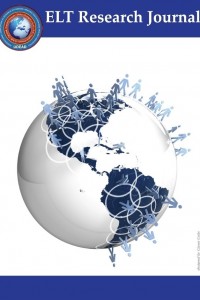Abstract
References
- Alkhateeb O., Kraishan, O.M. & Salah, R.O. (2015). Level of psychological burnout of a sample of secondary phase teachers in Ma’an governorate and its relationship with some other variables, International Education Studies, 8 (6).
- Bas, G. (2011). Teacher student control ideology and burnout: their correlation. Australian Journal of Teacher Education, 36 (4), 84-94.
- Chan D.V. ( 2007). Burnout, self-efficacy, and successful intelligence among Chinese prospective and in-service school teachers in Hong Kong. Educational Psychology, 27(1), 33-49.
- Corbin, J. and Strauss, A. (2008) Basics of Qualitative Research Techniques and Procedures for Developing Grounded Theory. Sage, Thousand Oaks.
- Cunningham, W.G. (1983). Teachers’ burnout solutions for 1980s: a review of literature, The Urban Review, 15(1), 37-51.
- Goddard R. & O’Brien, P. (2004). Are beginning teachers with a second degree at a higher Risk of early career burnout, Australian Journal of Teacher Education, 29(1), 1-11.
- Hogan R. l. & McKnight, M.A.( 2007). Exploring burnout among university online instructors: An initial investigation. Internet and Higher Education, 10, 117–124.
- Koruklu N., Özenoğlu-Kiremit H., Feyzioğlu B., & Aladağ.( 2012). Teachers’ burnout levels in terms of some variables, Educational Sciences: Theory & Practice, 12 (3), 1823-1830.
- Masclach and Jackson (1981). The measurement of experienced burnout. Journal of Occupational Behaviour, 2, 99-113.
- Maslach C. (1976). Burned-out. Human Behavior, 5 (9), 16-24.
- Mukundan, J. & Khandehroo, K. (2010). Burnout among English language teachers in Malaysia, Contemporary Issues in Education Research, 3 (1), 71-76.
- Lau, Yuen & Chan (2005). Demographic characteristics make a difference to burnout among Hong Kong secondary school teachers. Social Indicators Research, 71, 491–516.
- Pillay, H., Gaddard R. & Wilss, L. (2005) Well-being, burnout and competence: implications for teachers, Australian Journal of Teacher Education, 30(2), 22-33.
- Reeves, D.B. (2012). Confront teacher burnout with more safety, time, and R-E-S-P-E-C-T. ASCD Express, 7(12). Retrieved from http://www.ascd.org/ascd-express/vol7/712-reeves.aspx
- Shukla A. & Trivedi T. (2008). Burnout in Indian teachers, Asia Pacific Education Review, 9 (3), 320-334.
Abstract
Teaching is a profession in which individuals interact and
construct their identities in relation to others; therefore, the challenges are
not limited to the restrictions regarding the curriculum or tests. Instructors may
feel stressed and restricted when dealing with certain social problems in the EFL
context. This can lead to undesirable attitudes towards
themselves, their students and profession, and lead to eventual burnout. This
study aims to identify the level of burnout EFL instructors experience on different
components of the burnout scale, find the possible effect of type of university
and the degree on the EFL instructors’ level of burnout, and indicate possible
reasons for burnout and EFL instructors’ suggestions towards preventing it. The
results of the questionnaire completed by sixty-four EFL instructors in Turkey
indicated the level of burnout of the EFL instructors for Emotional Exhaustion and Depersonalization
was high irrespective of the type of institution. There was a significant
difference between state and private university educators’ perceptions of the
burnout level for these two dimensions whereas there was no significant
difference for Personal Achievement.
Semi-structured interviews conducted with seven instructors provided details
regarding the reasons for burnout and ways to avoid future burnout in the EFL context.
Keywords
References
- Alkhateeb O., Kraishan, O.M. & Salah, R.O. (2015). Level of psychological burnout of a sample of secondary phase teachers in Ma’an governorate and its relationship with some other variables, International Education Studies, 8 (6).
- Bas, G. (2011). Teacher student control ideology and burnout: their correlation. Australian Journal of Teacher Education, 36 (4), 84-94.
- Chan D.V. ( 2007). Burnout, self-efficacy, and successful intelligence among Chinese prospective and in-service school teachers in Hong Kong. Educational Psychology, 27(1), 33-49.
- Corbin, J. and Strauss, A. (2008) Basics of Qualitative Research Techniques and Procedures for Developing Grounded Theory. Sage, Thousand Oaks.
- Cunningham, W.G. (1983). Teachers’ burnout solutions for 1980s: a review of literature, The Urban Review, 15(1), 37-51.
- Goddard R. & O’Brien, P. (2004). Are beginning teachers with a second degree at a higher Risk of early career burnout, Australian Journal of Teacher Education, 29(1), 1-11.
- Hogan R. l. & McKnight, M.A.( 2007). Exploring burnout among university online instructors: An initial investigation. Internet and Higher Education, 10, 117–124.
- Koruklu N., Özenoğlu-Kiremit H., Feyzioğlu B., & Aladağ.( 2012). Teachers’ burnout levels in terms of some variables, Educational Sciences: Theory & Practice, 12 (3), 1823-1830.
- Masclach and Jackson (1981). The measurement of experienced burnout. Journal of Occupational Behaviour, 2, 99-113.
- Maslach C. (1976). Burned-out. Human Behavior, 5 (9), 16-24.
- Mukundan, J. & Khandehroo, K. (2010). Burnout among English language teachers in Malaysia, Contemporary Issues in Education Research, 3 (1), 71-76.
- Lau, Yuen & Chan (2005). Demographic characteristics make a difference to burnout among Hong Kong secondary school teachers. Social Indicators Research, 71, 491–516.
- Pillay, H., Gaddard R. & Wilss, L. (2005) Well-being, burnout and competence: implications for teachers, Australian Journal of Teacher Education, 30(2), 22-33.
- Reeves, D.B. (2012). Confront teacher burnout with more safety, time, and R-E-S-P-E-C-T. ASCD Express, 7(12). Retrieved from http://www.ascd.org/ascd-express/vol7/712-reeves.aspx
- Shukla A. & Trivedi T. (2008). Burnout in Indian teachers, Asia Pacific Education Review, 9 (3), 320-334.
Details
| Primary Language | English |
|---|---|
| Journal Section | Research Article |
| Authors | |
| Publication Date | June 30, 2019 |
| Submission Date | March 25, 2019 |
| Published in Issue | Year 2019 Volume: 8 Issue: 2 |


